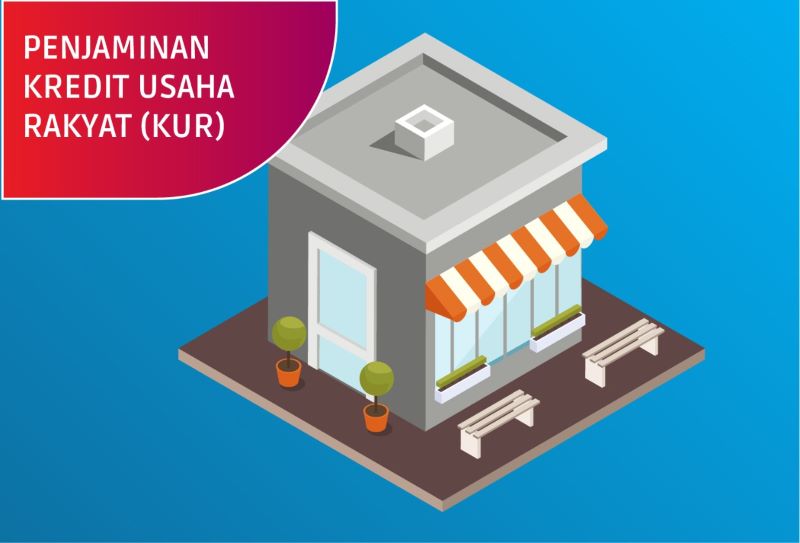Kredit Usaha Rakyat (KUR) is a working capital and/or investment loan designed for micro, small, and medium enterprises (MSMEs) engaged in productive, feasible ventures yet still deemed non-bankable, guaranteed by a guarantee company. The disbursement of KUR is expected to bolster the growth of these productive businesses.
Under Regulation of the Coordinating Minister for Economic Affairs of the Republic of Indonesia No. 15 of 2020, which amends Regulation No. 8 of 2019 on Guidelines for the Implementation of Kredit Usaha Rakyat, KUR is categorized as follows:
-
KUR Mikro
Kredit Modal Kerja (KMK) and/or Kredit Investasi (KI) provided to KUR recipients, with a credit limit above IDR 10,000,000 (ten million rupiah) and up to IDR 50,000,000 (fifty million rupiah) per recipient. -
KUR Kecil (Small KUR)
Kredit Modal Kerja (KMK) and/or Kredit Investasi (KI) provided to KUR recipients, with a credit limit above IDR 50,000,000 (fifty million rupiah) and up to a maximum of IDR 500,000,000 (five hundred million rupiah) for each individual. -
KUR Penempatan Tenaga Kerja Indonesia (TKI)
A KUR facility provided to finance the departure of prospective Indonesian migrant workers (TKI) to their designated host countries, with a maximum credit limit of IDR 25,000,000 (twenty-five million rupiah). -
KUR Khusus (Special KUR)
Kredit Modal Kerja (KMK) and/or Kredit Investasi (KI) extended to groups managed collectively in a cluster-based system with business partners, for commodities such as smallholder plantations, small-scale livestock, or small-scale fisheries. Each individual member of the group may receive a credit limit above IDR 25,000,000 (twenty-five million rupiah) up to a maximum of IDR 500,000,000 (five hundred million rupiah). -
KUR Super Mikro
Kredit Modal Kerja (KMK) and/or Kredit Investasi (KI) provided to KUR recipients, with a maximum credit limit of IDR 10,000,000 (ten million rupiah) per recipient.
This new regulation was established on August 19, 2020, and officially promulgated on August 24, 2020.




